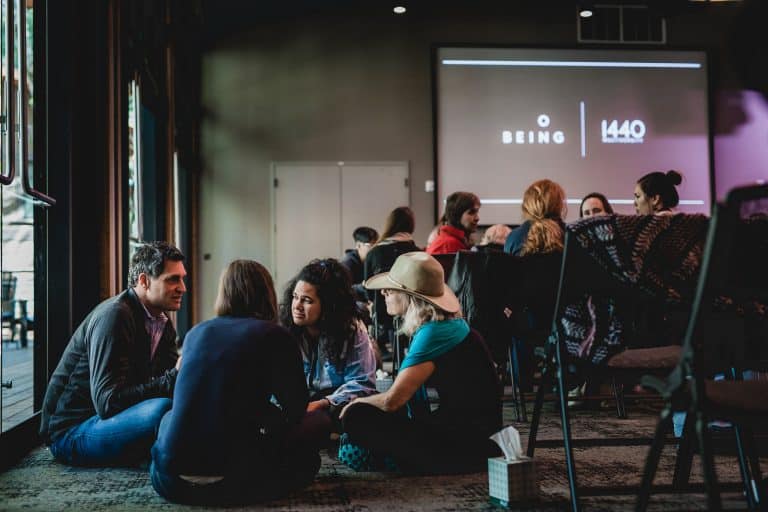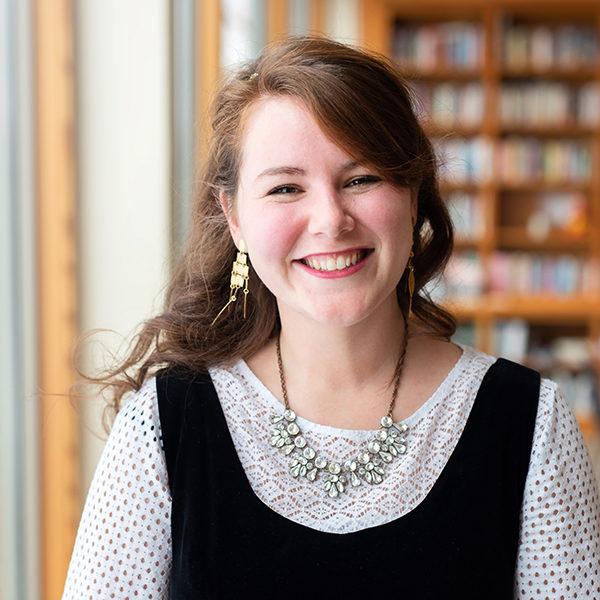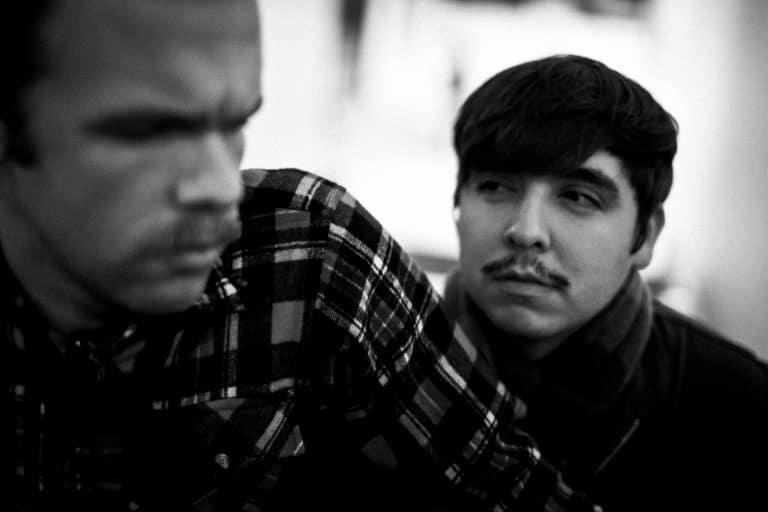
Image by Bethany Birnie, © All Rights Reserved.
Communal Listening Is Radical Presence
It feels as though the past few days at the On Being Gathering have been an exercise in what the poet Marilyn Nelson calls communal pondering:
“One of my college professors said that poetry rediscovers reality for us. And in a way, that’s what happens. You go to listen to a poet, and you leave not only having learned something about the poet’s reality, but also having learned something about the reality you are living. And I guess that’s what communal pondering is.”
It is not uncommon to hear a collective sigh that spans the whole room, an eruption of laughter, or a rapt silence. There is something essential about this — the shared experience of listening together.
And this kind of listening might be distinctly different from the kind of listening we do one-on-one.
Dr. Lewis Mehl-Madrona is a pioneer in the field of narrative medicine, whose Cherokee and Lakota heritage flows through his work. At a Civil Conversations Project workshop, he divided the room into small groups of four people to experience talking circles. One element of the talking circle was familiar: the concept of passing an object — a talking stick — to take turns exchanging words. What was unfamiliar was his second, and more important instruction. We were asked not to react at all to the words of the speaker: no nodding, no smiling, no micro-expressions.
In essence, he was inviting us to really be present to one another.
And, boy, was that difficult. But in taking ourselves and our reactions completely out of the equation, a kind of freedom opened up. It turns out when you’re not thinking about your own reaction, you’re a much better listener.
One woman described the experience as incredibly uncomfortable, and yet:
“By not doing anything, I felt more connected.”
Our body language and expressions, be they affirmation or negation, not only change how we take in the words being shared, they also modify what is being said.
Listening is a muscle we can exercise. And I think when we listen communally — whether in the pews of a church, in a concert hall, or to a podcast — we’re training ourselves to be present to each other in a radical way.

